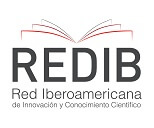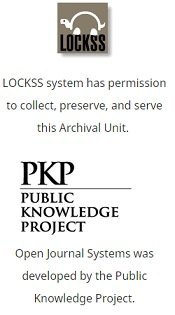Desafíos de la administración electrónica para la inclusión de las personas mayores en la sociedad digital
DOI:
https://doi.org/10.51915/ret.239Palabras clave:
Administración electrónica, brecha digital, envejecimiento, inclusión digital, alfabetización mediáticaResumen
A pesar de las ventajas que proporciona la administración digital, no todos los colectivos sociales, entre ellos el de las personas mayores, están preparados para afrontar esta nueva forma de relación con la Administración. En España el uso que los seniors realizan de la administración electrónica es muy limitado, sin embargo, las administraciones públicas están avanzado hacia la digitalización que se ha acelerado a causa de la pandemia. El objetivo principal de esta investigación es profundizar en la relación de las personas españolas mayores de 60 años con la administración electrónica. Se plantea una triangulación metodológica apoyada en dos técnicas cualitativas, los grupos de discusión integrados por españoles de más de 60 años y el método Delphi aplicado a ocho expertos en gestión de las TICs de ámbito privado y público. Los resultados demuestran un interés del público mayor por participar en los procedimientos administrativos, pero también su falta de conocimiento para poder hacerlo con aprovechamiento. Los expertos declaran que existen iniciativas dirigidas a este colectivo, aunque no hay un consenso sobre el tipo de acciones que deberían implementarse. Se evidencia que el público mayor no es prioritario para la estrategia digital de las organizaciones públicas.
Descargas
Estadísticas globales ℹ️
|
1478
Visualizaciones
|
660
Descargas
|
|
2138
Total
|
|
Citas
ABAD-ALCALÁ L. (2016). Alfabetización mediática para la e-inclusión de personas mayores. Dykinson.
ABAD-ALCALÁ L. (2014). Diseño de programas de e-inclusión para alfabetización mediática de personas mayores. Comunicar, 42, 173-80. https://doi.org/10.3916/C42-2014-17
AGUDO-PRADO S., PASCUAL-SEVILLANO M. A., & FOMBONA-CADAVIECO J. (2012). Usos de las herramientas digitales entre las personas mayores. Comunicar, 39, 193-201. https://doi.org/10.3916/C39-2012-03-10
ALA-MUTKA K., MALANOWSKI N., PUNIE Y., & CABRERA, M. (2008). Active Ageing and the Potential of ICT for Learning. Institute for Prospective Technological Studies (IPTS). Joint Research Centre (JRC), European. Communities. https://doi.org/10.2791/33182
BARRERA-BARRERA, R., REY-MORENO, M., & MEDINA-MOLINA, C. (2019). Fatores explicativos da preferência e uso da administração eletrônica na Espanha. Revista de Administração Pública, 53(2), 349-374. https://doi.org/10.1590/0034-761220170391
BÉLANGER, F., & CARTER, L. (2009). The impact of the digital divide on e-government use. Communications of the ACM, 52(4), 132-135. https://doi.org/10.1145/1498765.1498801
BERNAL-MENESES, L., GABELAS-BARROSO, J. A., & MARTA-LAZO, C. (2019). Las tecnologías de la relación, la información y la comunicación (TRIC) como entorno de integración social. Interface (Botucatu), 23, 180149. https://doi.org/10.1590/Interface.180149
BOULKEDID, R., ABDOUL, H., LOUSTAU, M., SIBONY, O., & ALBERTI, C. (2011). Using and reporting the Delphi method for selecting healthcare quality indicators: a systematic review. PLoS One. 6(6), e20476. https://doi.org/10.1371/journal.pone.0020476
BRECHDIG (2021). Seniors digitales: Informe sobre el uso del comercio y la administración electrónica en España. CEU Ediciones.
COLESCA, S. E., & DOBRICA, L. (2008). Adoption and use of e-government services: the case of Romania. Journal of Applied Research and Technology, 6(3), 204-217. https://doi.org/10.22201/icat.16656423.2008.6.03.526
CHIRARA, S. C. (2018). Social inclusion: An e-government approach to access social welfare benefits [Doctoral Thesis]. Nottingham Trent University.
EBBERS, W. E., PIETERSON, W. J., & NOORDMAN, H. N. (2008). Electronic government: ethinking channel management strategies. Government Information Quarterly, 25(2), 181-201. https://doi.org/10.1016/j.giq.2006.11.003
GARCÍA BALUJA, W., & PLASENCIA SOLER, J. A. (2020). Aspectos claves para la informatización y el Gobierno Electrónico. Revista Cubana de Ciencias Informáticas, 14(3), 124-147. https://cutt.ly/BTa1y2M
GARCÍA-VALDÉS, M, & SUÁREZ-MARÍN, M. (2013). El método Delphi para la consulta a expertos en la investigación científica. Revista Cubana de Salud Pública, 39(2), 253-67. https://cutt.ly/JR10XcV
GONZÁLEZ-CRESPO, R., & SANJUÁN-MARTÍNEZ, O. (2010). La Web 3.0 al servicio de las personas discapacitadas auditivas mediante las pautas de accesibilidad 2.0. Soc. y Utopía. Revista de Ciencias Sociales, (36), 153-172. https://cutt.ly/9Ta1Urh
GOPAL A. V., & MURALE, V. (2018). Acceptance of technology by senior citizens. International Journal of Pure and Applied Mathematics, 118(5), 645-650. https://cutt.ly/bTa1SIQ
KRUEGER, R. A. (1991). El grupo de discusión. Guía práctica para la investigación aplicada. Pirámide.
LIIKANEN, E. (2004). La Administración electrónica para los servicios públicos europeos del futuro. UOC: Lección inaugural. https://cutt.ly/vTa1XLj
LINSTONE, H. A., & TUROFF, M. (2002). The Delphi Method Techniques and Applications [Internet]. Addison-Wesley. https://cutt.ly/Q3a4AKg
LLORENTE-BARROSO, C., PRETEL-JIMÉNEZ, M., ABAD-ALCALÁ, L., SÁNCHEZ-VALLE, M. & VIÑARÁS-ABAD, M. (2018). Administración electrónica y comercio electrónico como instrumentos para un envejecimiento activo. Aula Abierta, 47(1), 87-96. https://doi.org/10.17811/rifie.47.1.2018.87-96
LLORENTE-BARROSO, C., VIÑARÁS-ABAD, M., & SÁNCHEZ-VALLE, M. (2015). Internet and the Elderly: Enhancing Active Ageing. Comunicar, 45, 29-36. https://doi.org/10.3916/C45-2015-03
MA, L., & ZHENG, Y. (2017). Does E-Government Performance Actually Boost Citizen Use? Evidence from European Countries. Public Management Review, 20(10), 1513-32. https://doi.org/10.1080/14719037.2017.1412117
MOLNÁR, T., KO, A., & MÁTYUS, B. (2017). Exploring Usability and Acceptance Factors of m-Government Systems for Elderly. In: Ko A, & Francesconi E. (Eds.). Electronic Government and the Information Systems Perspective. EGOVIS. Springer International Publishing AG, pp. 175-188. https://doi.org/10.1007/978-3-319-64248-2_13
MORGAN, D. L. (1996). Focus groups. Annual review of sociology, 22, 129-52. https://doi.org/10.1146/annurev.soc.22.1.129
PHANG, C. W., SUTANTO, J., KANKANHALLI, A., LI, Y., TAN, B. C. Y., & TEO, H. H. (2006). Senior Citizens' Acceptance of Information Systems: A Study in the Context of e-Government Services. IEEE Transactions on Engineering Management, 53(4), 555-69. https://doi.org/10.1109/TEM.2006.883710
REGUANT-ÁLVAREZ, M., & TORRADO-FONSECA M. (2016). El método Delphi. REIRE. Revista d'Innovació i Recerca en Educació, 9(2), 87-102. https://doi.org/10.1344/reire2016.9.1916
RAMÍREZ, J., RINCÓN, D., & ROMERO, M. G. (2011). Gobierno electrónico: un signo de inclusión digital y poder popular. Revista de Ciencias Sociales, 16(4). https://doi.org/10.31876/rcs.v16i4.25537
ROWLANDS, J. O. (1997). Questioning Empowerment. Working with Women in Honduras. Oxfam publication.
SÁNCHEZ-VALLE, M., LLORENTE-BARROSO, C., & ABAD-ALCALÁ, L. (2022). Perceptions and attitudes of Spanish “Digital Seniors” towards e-government. International Journal of Electronic Government Research (IJEGR), 18(1), 1-19. https://doi.org/10.4018/IJEGR.297228
SÁNCHEZ-VALLE, M., VIÑARÁS-ABAD, M., & LLORENTE-BARROSO, C. (2017). Empowering the elderly and promoting active ageing through the Internet: The benefit of e-inclusion programmes. In Kollak, I. (Ed.) Safe at Home with Assistive Technology, Springer International Publishing, pp. 95-108. https://doi.org/10.1007/978-3-319-42890-1_7
SILVA-MORALES, D. O., & LLATAS, F. D. H. (2021). Gobierno electrónico y transparencia en la municipalidad distrital de la Victoria. Ingeniería: Ciencia, Tecnología e Innovación, 8(1). https://doi.org/10.26495/icti.v8i1.1549
SHAPIRA N., BARAK, A., & GAL, I. (2007). Promoting older adults’ well-being through internet training and use. Aging & Mental Health, 11(5), 477-84. https://doi.org/10.1080/13607860601086546
SIREN A., & KNUDSEN S. G. (2017). Older adults and emerging digital service delivery: A mixed methods study on information and communications technology use, skills, and attitudes. Journal of Aging & Social Policy, 29(1), 35-50. https://doi.org/10.1080/08959420.2016.1187036
SLEGERS K., VAN-BOXTEL, M. P., & JOLLES, J. (2007). Effects of computer training and Internet usage on the well-being and quality of life of older adults: A randomized, controlled study. Educational Gerontology, 33, 91-110. https://doi.org/10.1080/03601270600846733
STEURER, J. (2011). The Delphi method: an efficient procedure to generate knowledge. Skeletal Radiology, 40(8), 959-91. https://doi.org/10.1007/s00256-011-1145-z
TJANDRA, A. M., WIDJONO, R. A., & VIOLETA, K. N. (2022). Systematic Review: Interface Design Study in eCommerce for Elder. In DESIGN-DECODED 2021: Proceedings of the 2nd International Conference on Design Industries & Creative Culture, vol. 5, 409. Kedah, Malaysia: European Alliance for Innovation. https://doi.org/10.4108/eai.24-8-2021.2315264
TOMAZ-DE-LIMA, R. R., ALVES-DE-VILAR, R. L., LIMA-DE-CASTRO, J., & COSTA-DE-LIMA, K. A. (2018). Educação interprofissional e a temática sobre o envelhecimento: Uma análise de projetos pedagógicos na área da Saúde. Interface (Botucatu), 22(Suppl 2), 1661-7163. https://doi.org/10.1590/1807-57622017.0466
TURNER, P., TURNER, S. E., & VAN-DE-WALLE, G. (2007). How older people account for their experiences with interactive technology. Behaviour & Information Technology, 4(26), 287-96. https://doi.org/10.1080/01449290601173499
VALLÉS, M. S. (2002). Entrevistas cualitativas. Centro de Investigaciones Sociológicas (CIS).
VIÑARÁS-ABAD, M., ABAD-ALCALÁ, L., LLORENTE-BARROSO, C., SÁNCHEZ-VALLE, M. & PRETEL-JIMÉNEZ, M. (2017). Administración electrónica y e-inclusión de las personas mayores. Revista Latina de Comunicación Social, 72, 197-219. https://doi.org/10.4185/RLCS-2017-1161
WANDKE, H., SENGPIEL, M., & SÖNKSEN, M, (2012). Myths about older people’s use of information and communication technology. Gerontology, 58(6), 564-70. https://doi.org/10.1159/000339104
WILLIAMSON, K., & ASLA, T. (2009). Information behavior of people in the fourth age: Implication for the conceptualization of information literacy. Library & Information Science Research, 31, 76-83. https://doi.org/10.1016/j.lisr.2009.01.002
XIE, B., & BUGG, J. M. (2009). Public library computer training for older adults to access high-quality Internet health information. Library & Information Science Research, 31(3), 155-62. https://doi.org/10.1016/j.lisr.2009.03.004
YAP, C., AHMAD, R., MASON, C., & NEWAZ, F. (2017). Satisfaction with E-Government Portals: Perspective of senior citizens. Proceedings of the 9th International Joint Conference on Knowledge Discovery, Knowledge Engineering and Knowledge Management (KMIS 2017), pp. 41-9. https://doi.org/10.5220/0006498000410049
ZIMMERMAN, M. (1990). Taking action in empowerment research: On the distinction between individual and psychological conceptions. American Journal of Community Psychologie, 18(1), 169-77. https://doi.org/10.1007/BF00922695
Descargas
Publicado
Cómo citar
Número
Sección
Licencia
Derechos de autor 2023 Revista Española de la Transparencia

Esta obra está bajo una licencia internacional Creative Commons Atribución-CompartirIgual 4.0.
La Revista Española de la Transparencia apuesta por el acceso gratuito y uso sin restricciones a su información y recursos digitales. La política de acceso abierto se materializa en:
- Acceso gratuito, libre y universal.
- Los autores y la Revista conceden a cualquier usuario potencial el derecho a utilizar, copiar o distribuir el contenido de manera ilimitada e irrevocable, con la única condición de reconocer la autoría.
- Los documentos electrónicos correspondientes al contenido de la Revista se incluyen en formato digital para permitir su acceso libre.

















